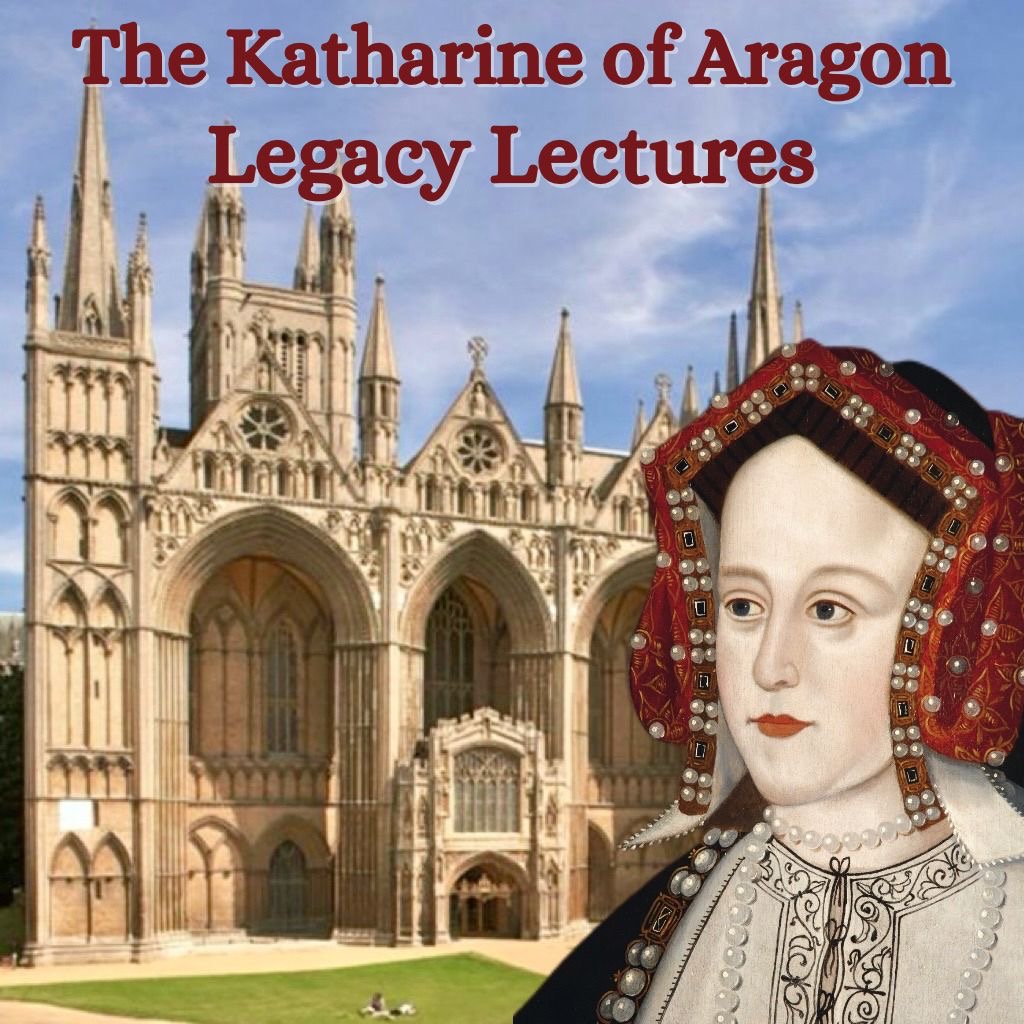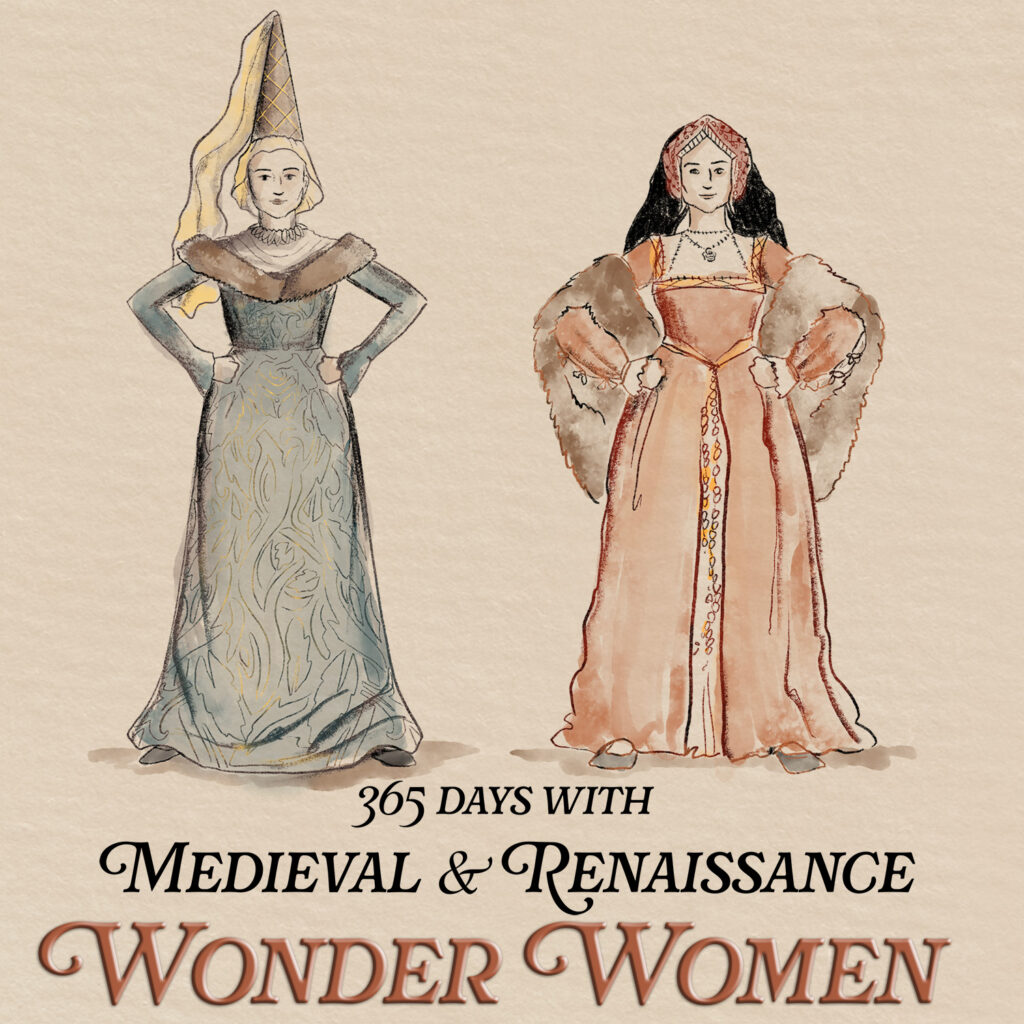On this, the 3rd birthday of Robert Parry’s wonderful novel Virgin and the Crab, I am delighted to share with you a guest article about the protagonist of Parry’s novel – the fascinating John Dee.
We are also giving away a copy of Virgin and the Crab to one lucky commenter, so be sure to leave a comment after Robert’s post.
You can read my review of this remarkable book here.
Welcome Robert!
Thank you Natalie, for helping me celebrate the 3rd Birthday of my novel ‘Virgin and the Crab’ here on The Tudor Trail. The novel itself is set in the middle of the 16th century, within that brief, extraordinary period in English history when we had no less than two kings and three queens in rapid succession, all within a twelve-year period. The main protagonist through all of this, is the astronomer, alchemist and spy, John Dee (1527-1609) and I would like to write a little here about how his reputation has suffered, often unjustly, over the centuries. For those who do not know too much about him, you can find a brief biographical sketch here.
In my story, Dee is a young man on an heroic mission, and many of the more controversial accusations to be levelled against him by his enemies, of which he had quite a few, had yet to be fashioned. But fashioned they were. As a character, he has made various appearances in novels and screenplays over the centuries, but unfortunately usually in a less-than-flattering guise. Often he has a walk-on part as some deranged magician or as a fantastical, half-wizard half-prophet kind of figure full of dire predictions of impending doom.
It is remarkable how someone who, in his time, was regarded as the greatest of humanist scholars, a man in possession of a library more extensive than that of most universities and who was consulted by almost every major player in Elizabethan society from the Queen downwards on matters as diverse as geography, mathematics, geometry, navigation, astronomy and optics, should have been virtually airbrushed out of history. But this has happened – and only very recently has there been any serious attempt by historians to rescue his name from obscurity.
He did, at least, get off to a good start as far as character portrayal goes. He was almost certainly the source for the wizard Prospero in Shakespeare’s play The Tempest. He might also have provided more than a little inspiration for Marlowe’s Doctor Faustus. He makes an appearance in Spenser’s Faerie Queen and, a little later, Ben Jonson probably incorporated a piece of him in his play The Alchemist. But from there it all seems to have gone downhill rather fast.
The damage was already beginning to take place, in fact, towards the end of his life, after the passing of Queen Elizabeth and the protection she had afforded him. The new regime under King James, with its witch hunts and its suspicion of anything redolent of demonic forces, could only view his inquiries into the world of the unseen as an embarrassment and a threat. The man who had once held the attention and ear of so many of the kings and queens of Europe, from London to Paris, from Moscow to Prague, began to lose status.
Later, during the 16th century, Dee’s posthumous reputation suffered a further blow due to the writings of a gentleman by the name of Meric Casaubon, a classical scholar who is said to have fallen foul of the government and church during the harsh Puritanical regime of Oliver Cromwell and who, for reasons perhaps best known to himself, resolved to argue against one of the fundamental principles of Protestant belief, namely that humans can receive guidance directly from divine sources, without intercession. Dee’s extensive records of angelic conversations were compiled in a volume by Casaubon as a means of demonstrating that such revelations could be evil and mischievous. Mud sticks, of course – and over subsequent generations, Casaubon’s character assassination of Dee in his lengthy introduction to his volume became ammunition for sceptics of the occult, and even of other, more sobre forms of spiritual enquiry.
By the Victorian era, Dee had been demoted to little more than a figure of ridicule. Any appearances he made in literature were often frivolous, trading merely on his vague associations with the world of magic and the occult and which could therefore always be trucked out to provide the occasional lurid touch for writers and dramatist in search of a ‘character.’ In our own times, Dee has occasionally fared a little better in fiction and on the screen, but not very often.
The fact is, John Dee, was a man who lived on the cusp between the old world and the new. That was what the 16th Century did – gradually changing its priorities from spiritual values to material ones. Astride these shifting sands, Dee was not only one of the most gifted of scientists at the forefront of the change, but he also remained a devout Christian and a dedicated and faithful servant of the Crown. The accusation, repeated still, that he died alone in abject poverty, the victim of a life of foolishness and ignorance is probably more than a little inaccurate, therefore. Hearsay statements to this effect made years after his death by those who did not know him – by the astrologer William Lilly, for example – are confused and cannot be relied upon as evidence. Lilly even refers to Dee’s education being at Oxford, when in fact it was at Cambridge. Yes, it is true that Dee’s diaries indicate that he sometimes borrowed money or sold books, but this is not necessarily a sign of poverty. In Tudor times, well-to-do people in large households would borrow to maintain cash flow – it was the ‘credit card’ of the times. The fact is, John Dee enjoyed the company and patronage of numerous wealthy and noble families until the end of his days. His son was a successful physician, and his daughter appears to have been devoted to him. He is even known to have cast horoscopes for his grandchildren.
Perhaps we need to look at Dee in a more tolerant light – not because he was a man who believed in angels, but rather because he was a man who asked whether there might be angels. And there is quite a difference between those two statements. In my novel I have tried to portray him as an intelligent and courageous being, a force for good and for progress – someone at the very centre of the intellectual and political universe of Tudor England. I wanted to do that because I believe that was what he was like.
http://robertparry.wordpress.com
https://www.facebook.com/RobertParry.author
Conditions of Entry
For your chance to win a copy of Virgin and the Crab you must be subscribed to On the Tudor Trail’s newsletter (if you are not already, sign up on our homepage).
Then simply leave a comment after Robert’s guest post between now and May 4, 2012.
Don’t forget to leave your name and a contact email.
Good luck!




















Fasinating article, thank you for posting it. John Dee has always been of interest to me. So many questions pop into my mind when thinking of him and the influence he had on Elizabeth I. Hope I win so I can read the novel, I’m sure it is spell binding.
Sounds like a great book! I would love to learn more about John Dee!
This is my first experience of John Dee, so luckily my mind will not be clouded by any of his bad press. I look forward to finding out more. Tudor intrigue, magic and mystery, what more could you want?!
John Dee is one of the most fascinating people of Elizabethan London. A novel about him is an intriguing one indeed.
Fascinating article. Thank you for posting. I’ve encountered John Dee as some sort of wizard or divulging into the unknown. I would love to learn more about John Dee.
Kudos! Brilliant synopsis of the life of a great (and good) man.
The idea for this book I really liked. John Dee is
an unusual character. I especially like his
relationship with magic. It’s certainly worthy of
the Queen Elizabeth character. It is a pity that
so rarely calls attention to the impact was
magic on people’s lives in the sixteenth century.
I would love to read this book. My email is: magdalenamakowka@wp.pl
sounds like a great book. I hope i get to read it. Nice article as well
email i_love_mark_always@yahoo.com
Another wonderful Tudor character. Mr Dee would be pleased to see in some way his immportality has endured through Mr Parry’s creation.
I would love to read this book! My e-mail is elizapol@hotmail.com
I added this book to my to-read list on Goodreads a while ago, as it caught my eye instantly. I am fancinated and intregued by its origionality and Robert Parry’s creation, and i would be extremely greatful if my name could be put forward for this increadible book giveaway as it is something that i would really love to read. Xx
From: Miss. Lucinda Fountain
Email: lfountain1@hotmail.co.uk
Sounds like a good read. I love reading the books that take a less written about character from history and put them in the forefront.
Magic has always fascinated me, and fantasy, too. John Dee sounds like a man I would like to know more about. This period in history is so full of unusual events. I am always looking for something new to learn about it.
He certainly does sound like the ‘Merlin’ of the Elizabethan times. He must have been a very interesting person to reseach. I hope I am lucky enough to win this book, if not I will definately be buying it.
My email is mike900r@hotmail.co.uk
This sounds like a fascinating book. I am very much interested in this era and know I would enjoy this book. The article is extremely well done also. Thank you! (I also subscribe to your newsletter)
Digicats {at} Sbcglobal {dot} Net
Great interview! I have always been fascinated by the relationship between Elizabeth and Dee. It has been portrayed in various ways thoughout books that were focused only on Elizabeth. That’s why I’m excited to read this book! Our local library does not have it, but I have requested it, and hope they will! Thanks to the author for thinking “outside of the box” in his topic!
The Tudor era is so captivating and all those that influenced the royals of that era!!!
Would like to read this book!
I’ve always been fascinated by the Tudors, as a whole..I would love to read this book!
Oh, I forgot to add that I’m subscribed to your newsletter, as well! Thanks for having an awesome blog and cool giveaways!
Great article!
The book sounds very interesting and Robert looks rather gorgeous in the photo!!
Thank you all for participating and thank you to Robert Parry for his generosity! The competition is now closed. Off to select a winner! Natalie
Congratulations Jessie! You have won a copy of Robert Parry’s ‘Virgin and the Crab’. I have sent you an email. Thank you to everyone else who participated, more giveaways coming soon!
Congratulations Jessie! A copy of Virgin and the Crab is on its way to you now. Thank you to everyone who took part.